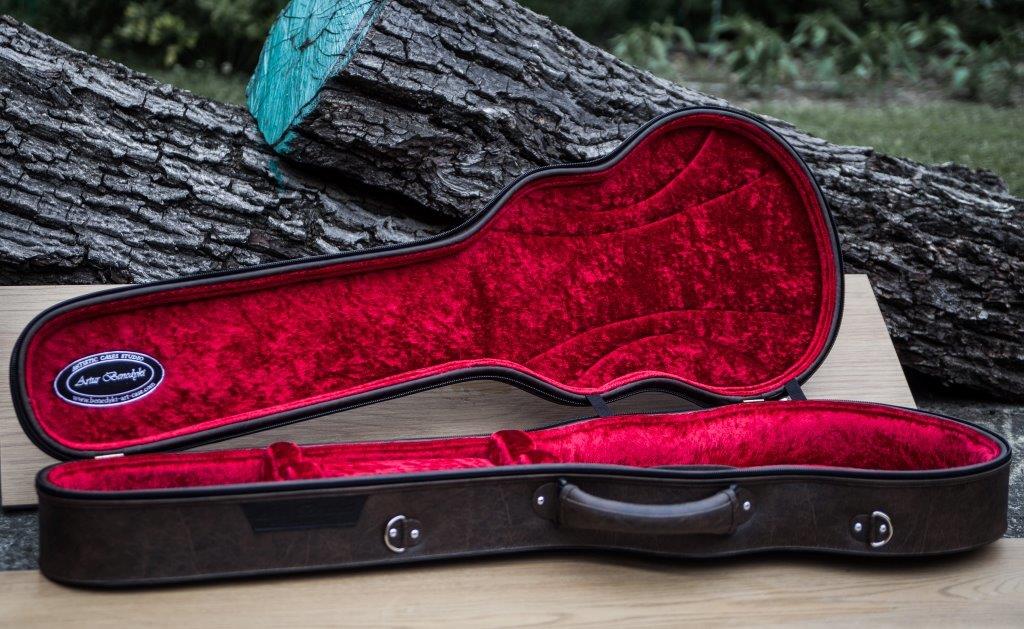Finding the right bass guitar case protects your instrument during storage or transport. This guide explores the types, features, and best options to keep your bass guitar safe and secure.
Hard Cases vs. Soft Cases
Consider your specific needs when choosing a case for your bass guitar. Bass guitar hard cases are excellent for providing robust protection. They are designed to withstand heavy impacts, making them ideal for traveling musicians or anyone storing their instruments in less controlled environments. Hard cases are typically made from ABS plastic or wood and feature sturdy latches or locks to secure your bass.
However, not everyone requires a hard case. For casual use or local gigs, soft guitar bass cases can offer adequate protection while being lightweight and easier to carry. These cases are typically made from padded fabric materials and often include straps for added convenience. Although they don’t provide the same level of protection as hard cases, they are a practical choice for shorter trips or quick storage solutions.
Consider how you plan to use the case when deciding between the two. A hard case is the best option if your instrument frequently travels or faces potential impacts. Otherwise, a soft case can be a lightweight and cost-effective alternative.
What to Look for in a Good Case
The electric bass guitar case market is vast, so it’s important to know what features to prioritize. Durability is critical. A high-quality bass guitar hard case should have a solid exterior to protect against physical damage. Look for materials like ABS plastic, plywood, or aluminum, offering excellent impact resistance.
The case should feature soft padding or foam inside that keeps your guitar in place and prevents scratches. Compartments for accessories such as strings, picks, and cables can also add value, keeping your essentials organized and easily accessible.
Lastly, don’t overlook the locking mechanism. A reliable latch system or TSA-approved locks are essential for ensuring your guitar remains secure, especially when traveling. For extra peace of mind, inspect the case’s hinges and handles to ensure they can handle regular use without breaking.
Specialized Cases for Electric Basses
Electric bass guitars require cases tailored to their unique shapes and sizes. A generic hard case might not provide a perfect fit, leaving your instrument vulnerable to movement during transport. Always opt for a case specifically designed for electric bass guitars.
These cases often include molded interiors that fit your guitar, minimizing movement and potential damage. Some also feature additional padding for sensitive areas like the neck and headstock. Extra compartments for storing accessories such as tuners or cables are common, adding practicality to these cases.
Choosing a specialized case ensures your instrument is properly protected. A small investment can save you from costly repairs or replacements.
Lightweight Options for Daily Use
A lightweight case might be better if you’re a musician who frequently travels to rehearsals or gigs. Soft bass guitar cases are easier to carry and often come with adjustable straps or handles for convenience. These cases are great for short trips or when you need quick access to your instrument.
However, not all soft cases are created equal. Look for models with reinforced padding to provide some level of protection against minor bumps and scratches. Water-resistant materials can also be a great addition, helping shield your guitar from unexpected weather conditions.
While soft cases are not a substitute for hard cases in terms of protection, they can be a practical choice for daily use or situations where portability is a top priority.
Balancing Cost and Quality
When shopping for a guitar bass case, it is important to balance cost and quality. While lower-priced options might seem appealing, they often lack the durability and features needed to keep your instrument safe over time.
Mid-range and premium cases often include better materials, enhanced padding, and secure locking systems. These features offer better protection and extend the lifespan of the case itself. Spending a little more upfront can save you from future expenses related to repairs or replacements.
Don’t let price alone dictate your decision. Evaluate the features, build quality, and customer reviews to ensure you’re making a worthwhile investment.
How to Maintain Your Case
Regular maintenance is essential to keeping your bass guitar case in good condition. Clean the exterior with a damp cloth to remove dirt and dust. For hard cases, use a mild detergent to remove stubborn stains.
Check the latches, hinges, and handles periodically to ensure they function properly. If you notice any loose parts, tighten them immediately to prevent further issues. Inspect the fabric for wear and tear for soft cases and ensure the zippers or straps are intact.
Proper storage is also key. Avoid placing your case in areas with high humidity or extreme temperatures, as this can damage both the case and your guitar. Following these simple steps will help extend the life of your case while ensuring your instrument stays safe.
